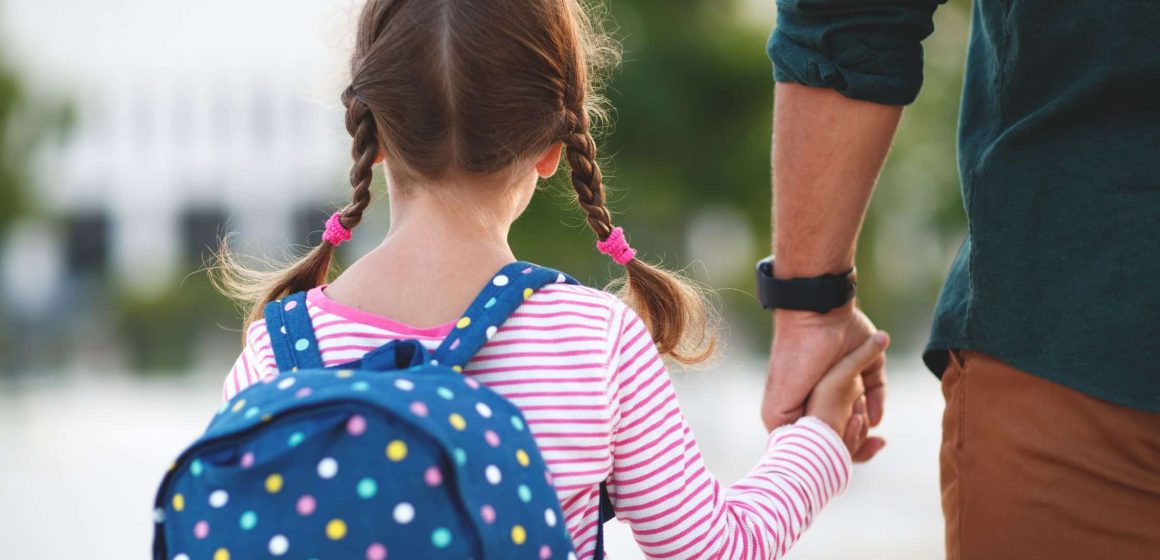The first day of school is a significant milestone for children and parents alike. Whether your child is starting kindergarten or transitioning to a new grade, the shift from summer to the classroom can be challenging. With the right preparation, you can help your child navigate this transition smoothly and confidently. Here are some practical tips to ensure your child is ready for their first day of school.
Establish a Routine
Set a Consistent Bedtime: During summer, bedtime routines often become more relaxed. A few weeks before school starts, gradually adjust your child’s bedtime to ensure they get enough sleep. Aim for at least 9-11 hours of sleep per night, depending on their age.
Create a Morning Routine: Establish a morning routine that includes time for breakfast, getting dressed, and preparing for the day. Practice this routine before school starts to make the first morning easier.
Visit the School
Tour the School: If possible, visit the school with your child before the first day. Familiarize them with the layout, including their classroom, bathrooms, cafeteria, and playground. This can help reduce anxiety about the unknown.
Meet the Teacher: Arrange a meeting with your child’s teacher before school begins. This allows your child to get acquainted with their teacher and feel more comfortable in the new environment.
Prepare School Supplies
Get the Right Supplies: Make a list of required school supplies and involve your child in the shopping process. Let them choose their backpack, lunchbox, and other items to create excitement about starting school.
Label Everything: Label all school supplies, clothing, and personal items with your child’s name to prevent them from getting lost.
Encourage Independence
Practice Self-Care Skills: Encourage your child to practice self-care skills such as dressing themselves, using the bathroom independently, and washing their hands. These skills will help them feel more confident and self-sufficient at school.
Teach Them to Ask for Help: Discuss the importance of asking for help when needed. Reassure your child that it’s okay to ask their teacher or a classmate if they have any questions or need assistance.
Discuss Expectations
Talk About the School Day: Explain what a typical school day will look like, including activities, lunchtime, and recess. Use positive language to describe school as an exciting place to learn and make new friends.
Set Expectations for Behavior: Discuss the importance of listening to the teacher, following rules, and being respectful to classmates. Reinforce positive behavior and explain any specific expectations or rules.
Manage Anxiety
Acknowledge Their Feelings: It’s normal for children to feel anxious about starting school. Encourage them to express their feelings and reassure them that it’s okay to feel nervous. Share your own positive school experiences to build excitement.
Read Books About School: Reading books about starting school can help your child understand what to expect and address any fears they may have. Some recommended titles include “The Kissing Hand” by Audrey Penn and “First Day Jitters” by Julie Danneberg.
Practice Social Skills
Role-Play Scenarios: Practice social scenarios such as introducing themselves to classmates, sharing, and taking turns. Role-playing can help your child feel more prepared for social interactions at school.
Arrange Playdates: If possible, arrange playdates with future classmates to help your child build friendships before school starts.
Health and Safety
Update Medical Records: Ensure your child’s vaccinations are up-to-date and provide the school with any necessary medical information, including allergies or chronic conditions.
Pack a Healthy Lunch: Plan and pack nutritious lunches and snacks that will keep your child energized throughout the day. Involve your child in the lunch-packing process to ensure they have foods they enjoy.
The Night Before
Prepare Together: Involve your child in preparing for the first day. Lay out their clothes, pack their backpack, and review the schedule for the next day. This can help reduce morning stress.
Encourage a Relaxing Evening: Spend quality time together doing a calming activity, such as reading a book or taking a walk. A relaxing evening can help your child get a good night’s sleep.
The First Day
Stay Positive: Approach the first day with a positive attitude. Your enthusiasm and confidence can help your child feel more excited and less anxious.
Be On Time: Arrive at school on time to avoid a rushed and stressful start. Walk your child to their classroom if allowed, and offer a quick, reassuring goodbye.
Celebrate the Day: Plan a special after-school activity or treat to celebrate the first day of school. This can help your child associate school with positive experiences.
Conclusion
Preparing your child for their first day of school involves establishing routines, visiting the school, encouraging independence, and managing anxiety. By taking these steps, you can help ensure a smooth transition from summer to the classroom, setting the stage for a successful and enjoyable school year.












